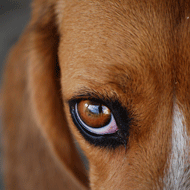"Staggering" number of unscrupulous online pet ads

Adverts removed by moderators included those for underage animals, banned breeds and endangered species.
In the first six months of this year, a total of 100,000 unscrupulous adverts were removed from some of the UK's largest websites for classified ads.
Trained volunteers from various animal welfare organisations carried out a six month pilot scheme to trial a set of minimum standards for online pet adverts, which were introduced last year by the Pet Advertising Advisory Group (PAAG).
PAAG chairman Clarissa Baldwin said: "The truly staggering number of adverts that have been blocked in the pilot scheme is a real eye-opener in terms of the scale of the problem in the UK...
"We hope that continued engagement will ultimately help to make the internet a safer place for pets and those looking to purchase a pet.
"Unfortunately, despite the fantastic efforts of a number of the biggest UK websites, thousands of other websites continue to accept illegal, unethical and unscrupulous adverts."
The standards were introduced in a bid to improve animal welfare and protect consumers from buying sick, dangerous or even illegal animals online.
Each of the 100,000 adverts removed by volunteers were in breach of the PAAG's standards, offering for sale underage animals, banned breeds, illegally imported and endangered species. Animals were also offered for sale in exchange for inanimate objects.
Animal welfare minister Lord de Mauley praised the achievements of the PAAG: "Preventing over 100,000 illegal or unscrupulous online adverts of pets for sale is an incredible achievement."
As the pilot scheme draws to a close, PAAG is now calling on members of the public to help by reporting any suspicious adverts they may come across directly to the sites themselves. If the site fails to remove the advert, the public are advised to contact PAAG.
The sites taking part in the pilot scheme were: Gumtree, Pets4Homes, PreLoved, EPupz, FridayAds and Vivastreet. They removed ads picked up by their own filters as well as those highlighted by PAAG volunteers.
As the standards launched last year, PAAG revealed some of the worst examples of online pet adverts - including adverts for underage puppies, illegal pit bulls, a cat in need of veterinary treatment, marmoset monkeys and even an arctic fox. Some advertisers even offered to swap pets for mobile phones or watches.
It is hoped the standards will help to protect animals and members of the public. Members of the group are calling on more websites to sign up to the minimum standards. PAAG says the standards are just the first step in solving the problems caused by online pet sales.



 RCVS Knowledge has welcomed Professor Peter Cockcroft as editor-in-chief for Veterinary Evidence.
RCVS Knowledge has welcomed Professor Peter Cockcroft as editor-in-chief for Veterinary Evidence.